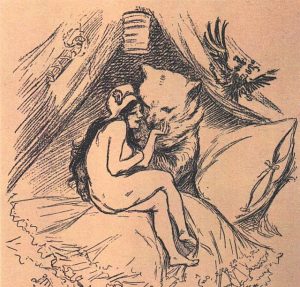Franco-Eurasian Entanglements Network
CEREES Research Network
Introduction

The Franco-Eurasian Entanglements Network brings together a range of researchers to examine the transnational circulation of ideas, cultures, and people between France and Eurasia from the nineteenth century, with a particular focus on émigrés of the Russian Empire and Soviet Union (including its constituent lands and peoples).
Peter the Great (1682-1721) visited Paris in 1717, and he incorporated French design into his own “window on the West,” St. Petersburg. French fashions were further entrenched in the Russian court under Empress Elizabeth (1741-62). It was Catherine the Great who instructed that French be the official language of the imperial Russian court. In turn, during the late nineteenth century, Paris and the south of France had become the notorious playground of the imperial Russian nobility. Imperial Russian émigrés also flocked to France, often becoming a formative part the the radical scene there.
This network extends on QMUL’s past and present renown in both French and Russian studies, examining the transnational circulations and exchange of knowledge between these two centres and contributors to the modern world.
Composed of scholars interested in the intellectual, ideological, cultural, and radical circulations, the network seeks to assess exchanges in the spheres of:
- emigration, mobility, diaspora
- institutions, networks, print culture
- culture, science, politics
- political thought
- transnational histories
- global avant-garde movements
- literary criticism, aesthetics, theory
Participants:
Andy Willimott (Associate Professor, QMUL)
Isabel Jacobs (PhD candidate, Queen Mary University of London)
Veselina Dzhumbeva (PhD candidate, Queen Mary University of London)
Abigail Holekamp (PostDoc, University of Chicago, USA)
Colin Jones (Emeritus Professor, QMUL)
Charlotte Jones (Leverhulme PostDoc, QMUL)
Quentin Deluermoz (Professor, L’université Paris 1 Panthéon-Sorbonne)
If you would like to participate, please email Dr Andy Willimott at a.willimott@qmul.ac.uk
Events
Ex Oriente Lux: Emigré Culture in Interwar France
1-2 September 2023
Queen Mary University of London
In the 1920-30s, France was a transnational laboratory of ideas, with Paris hailed as the capital of modernity. However, new intellectual and artistic trends were often imported by immigrants, many of them from Central and Eastern Europe (Fotiade 2001; Tihanov 2004). After Berlin declined as a diasporic capital in the early 1930s, thousands of Eastern Europeans settled in Paris. The influx of innovative currents of thought (Marxism; phenomenology; existential thought) and artistic avant-gardes (Dadaism; Futurism; Surrealism) from Central and Eastern Europe radically shifted cultural life in France between the wars. The significance of Paris as the capital of Russians who fled the Revolution and Civil War is relatively well-explored (Livak
2003; Rubins 2015). However, “Russian Montparnasse” was also the home of other émigrés from Central and Eastern Europe, many of them Jewish.
This diasporic “archipelago” was by no means unified, especially concerning aesthetics and political affiliation. Many of the émigré networks, journals and institutions of interwar Paris are still relatively little explored, especially when it comes to the contemporary relevance of women or non-Russophone authors in exile. With this international conference, we want to give a voice to scholarship on émigrés who have remained so far in the marginalized space beyond all canons,
excluded from both the history of French and Soviet letters. Papers that focus on “smaller” languages, underrepresented figures or queer authors, artists and philosophers are very welcome.
Hosted at Queen Mary’s School of Languages, Linguistics and Film, our International
Conference has a cross-cultural and interdisciplinary scope. We particularly encourage proposals by graduate students and early career scholars in comparative literature, art history, Eastern European, Central Asian and Caucasian studies, cultural studies, geography, philosophy, Jewish studies, modern history, French studies, among other disciplines.
Confirmed keynote speakers: Maria Rubins, Leonid Livak, Alexandra Smith.
Possible topics include:
- transnational exchange of ideas
- gender and sexuality
- identity construction
- migration, mobility, diaspora
- critical, postcolonial and queer perspectives
- translation and multilingualism
- institutions, networks, print culture
- culture, science and politics
- global avant-garde movements
- conflicts and cooperation in exile
- literary criticism, aesthetics, theory
This is an in-person event but online presentations can also be arranged if necessary.
Please send us your abstract of around 300 words to emigreconference@gmail.comby 15 April 2023. Notification of acceptance will be sent by 1 May 2023.
Organizers: Veselina Dzhumbeva (QMUL) & Isabel Jacobs (QMUL)
Contact: emigreconference@gmail.com

Shape the Conversation
To join our mailing list, participate in our programme of events, or find out how we can support your research, please contact hss-cerees@qmul.ac.uk